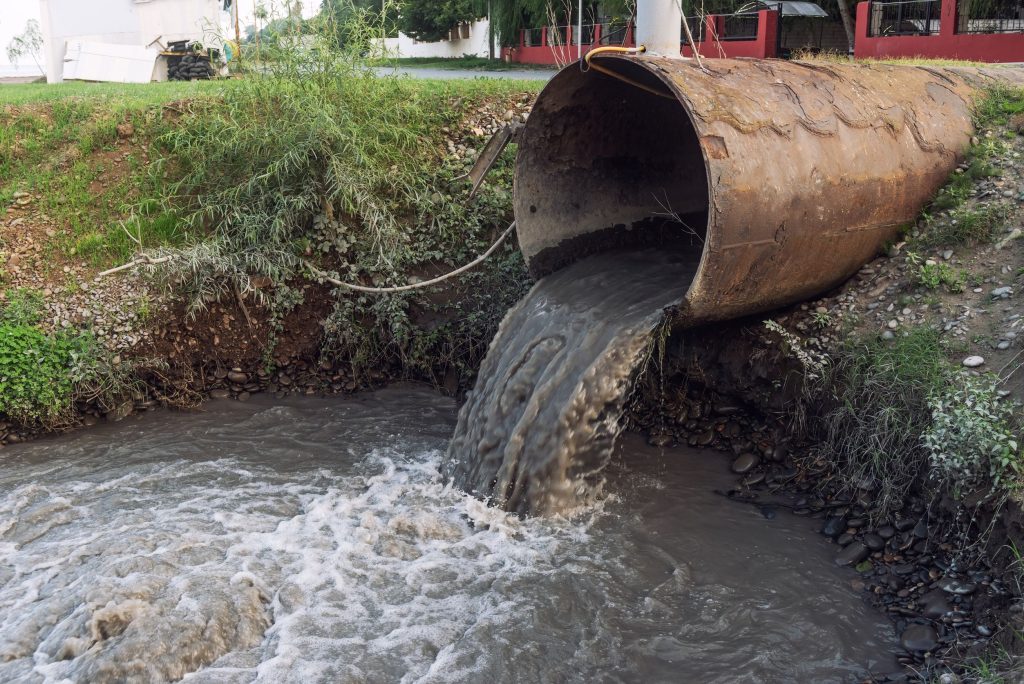How to Prevent Pollution in Your Business
June 20, 2025
 Since Pollution Prevention Guidelines (PPG) were withdrawn in 2015, businesses in the UK have been required to comply with the Environment Agency’s standard Pollution Prevention for Businesses advice.
Since Pollution Prevention Guidelines (PPG) were withdrawn in 2015, businesses in the UK have been required to comply with the Environment Agency’s standard Pollution Prevention for Businesses advice.
The guidance is promoted as best practice for organisations of any shape, size and sector, but this has led to criticism from businesses who say they have had to produce their own rules and procedures to protect the environment, rather than following official direction.
In research undertaken last year by our sister company, Metro Rod, it was found that almost two thirds (62%) of business owners are unaware of the steps they should be taking to prevent pollution, with only 15% aware of the specific guidelines their business is required to comply with.
Here, we explore more findings from the research, the steps businesses can take to prevent pollution and associated fines, and how we at Willow Pumps can support you avoid the risks associated with harming the environment.
Businesses and Pollution
As part of the research, although nine out of ten respondents (91%) said pollution prevention is important to their business, 85% said they’re concerned that their company might one day be subject to pollution-related penalties.
Some further interesting insights include:
- Two-fifths (41%) are unaware they are responsible for the correct disposal of hazardous substances
- 35% are unaware they are responsible for the correct disposal of commercial waste and recycling
- Two-fifths (40%) are unaware they’re responsible for preventing pollution
- Less than half are aware that certain everyday practices – including vehicle washing, water cooling, cleaning of food production areas and staff canteens – produce contaminated water
Business Fines for Pollution
Section 111 of the Environment Act states that water discharged from a business's premises, including car parks, industrial units, and commercial properties, should not cause pollution.
Although there are serious legal implications for businesses found not to be complying with their environmental obligations, knowledge of this is minimal. As part of the research, over 75% of respondents were unaware that if their business was found to be in breach of environmental legislation, they could face both an unlimited fine and a criminal offence with potential for imprisonment. Plus, aside from legal punishment, any business found to be in this situation could experience damage to their reputation for contributing to environmental issues.
How to Prevent Pollution in Your Business
When it comes to minimising impact on the environment, prevention is better than cure – especially for companies who simply cannot avoid the need to undertake processes which result in contaminated water and trade effluent. For your site to comply with the Environment Agency's guidelines and prevent disruption, it is vital to understand the condition of your drains and their layout.
Here's how you can improve your environmental footprint and prevent pollution in your business:
- Create a drainage plan: a drainage plan details where drains are, their direction of flow and where they discharge into. This helps you understand steps you need to take to minimise the risk of pollution, such as whether you need to install an oil separator and where it should go
- Write a pollution incident response plan: this outlines the actions you need to take to reduce the level of pollution created by an accident on site, meaning that if an issue does arise, you’re prepared to protect the environment from unnecessary harm
- Implement a pre-planned maintenance routine: regular maintenance reduces costly emergency call outs, prevents operational downtime and will identify the actions you need to take to avoid the risk of fines. Work with a drainage expert who can advise on what needs to be implemented at your business to protect both your organisation and the environment from risk.
Willow Pumps and Pollution Prevention
At Willow Pumps, we’re experienced in helping your business minimise pollution with several key services, including:
- Grease trap emptying: Grease traps are an essential piece of equipment to stop fats, oils and grease entering the drains and causing fatbergs. Our team can empty your grease traps regularly to prevent buildup and ensure your system remains operational and non-polluting.
- Pump station servicing: Pump stations move the effluent around your site, and if they’re not maintained, wear and tear can cause failures and costly repairs. Our team will carry out a service at your pump station every six months to maintain its optimum condition.
- Interceptor emptying: Interceptors are a defence to stop contaminants from entering surface water drains, therefore minimising pollution. The Environment Agency recommends interceptors be emptied every six months, and at Willow Pumps, we have experts on hand to help do just that.
We have a team of experts available to discuss pollution prevention so you can be sure your business isn’t harming the local community. Contact us today to get our expert opinion on the steps you need to take to minimise your environmental footprint.